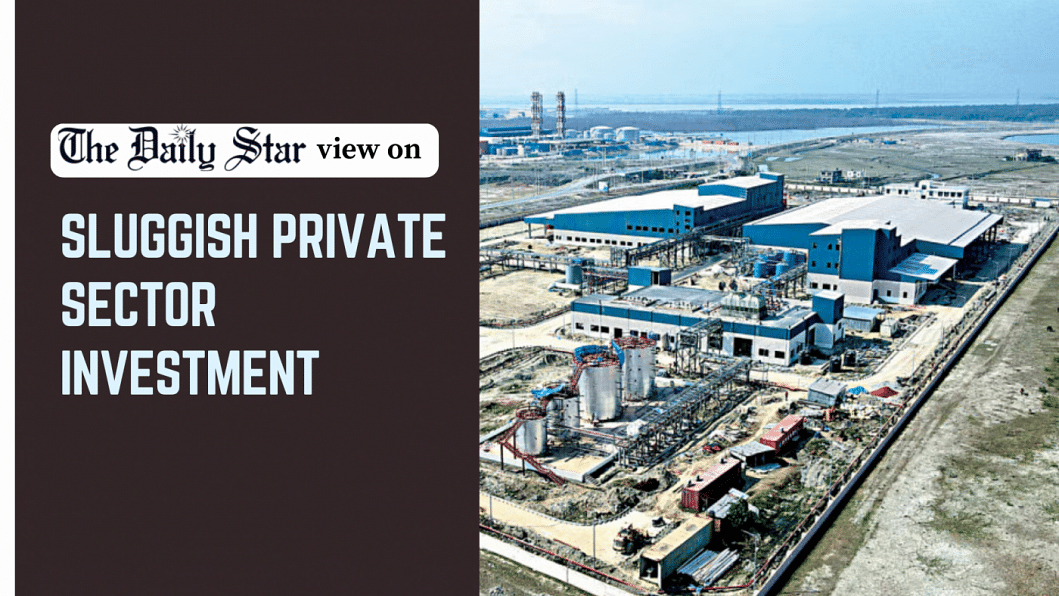Economy needs more private investment

It is worrisome that private sector investment isn't rising in the country, even though our foreign exchange reserves demonstrate promising stability, driven by record remittance inflows and growing exports. According to the latest data from the Bangladesh Bank, private sector credit grew by 9.86 percent year-on-year in August but slowed to 7.66 percent in November of the previous year. Furthermore, during the July-November period of the current fiscal year, the settlement of letters of credit (LC) for capital machinery imports declined by 21.9 percent compared to the same period in the previous fiscal year, while LC openings for such imports fell by 26.45 percent. Economists have identified political instability as a primary factor behind the lack of private investment activity, along with other contributing factors. They also warn that this sluggish growth could persist for another year unless the government implements effective measures.
Since taking office, the interim government has introduced several initiatives to stabilise the economy. For the first time since the interim administration assumed power in August, the country's forex reserves surpassed $21 billion, reaching $21.36 billion on December 31. This achievement is largely attributed to high remittance inflows, creditable to both our overseas workers and government initiatives. Additionally, Bangladesh's exports reached $50 billion in 2024, reflecting an 8.3 percent year-on-year increase. In December alone, exporters earned $4.62 billion, an 18 percent rise compared to the same month the previous year. These successes have been facilitated by the central bank's foreign currency policies and stable exchange rates.
However, such progress may not be sustainable without an increase in private investment. The country's private investment levels have been low for several years, and the current political uncertainty has exacerbated the challenges. Rising business costs, high interest rates, liquidity shortages, and a distressed banking system are key barriers to growth. Additionally, many business owners with ties to the previous government have ceased operations or are struggling, further deterring new investments. Persistent high inflation and interest rates have also increased business expenses, making it difficult for small and medium-sized enterprises to secure loans and expand.
To address these challenges, the government must prioritise maintaining political stability while taking immediate steps to curb inflation and eliminate barriers to doing business. Many local and foreign investors believe that certain rules and regulations from the National Board of Revenue and the Bangladesh Bank hinder investment. The government should engage with investors and other stakeholders to make these regulations more business-friendly. Furthermore, fostering greater collaboration with the private sector in policy-making during ongoing reforms is crucial.


 For all latest news, follow The Daily Star's Google News channel.
For all latest news, follow The Daily Star's Google News channel. 









Comments